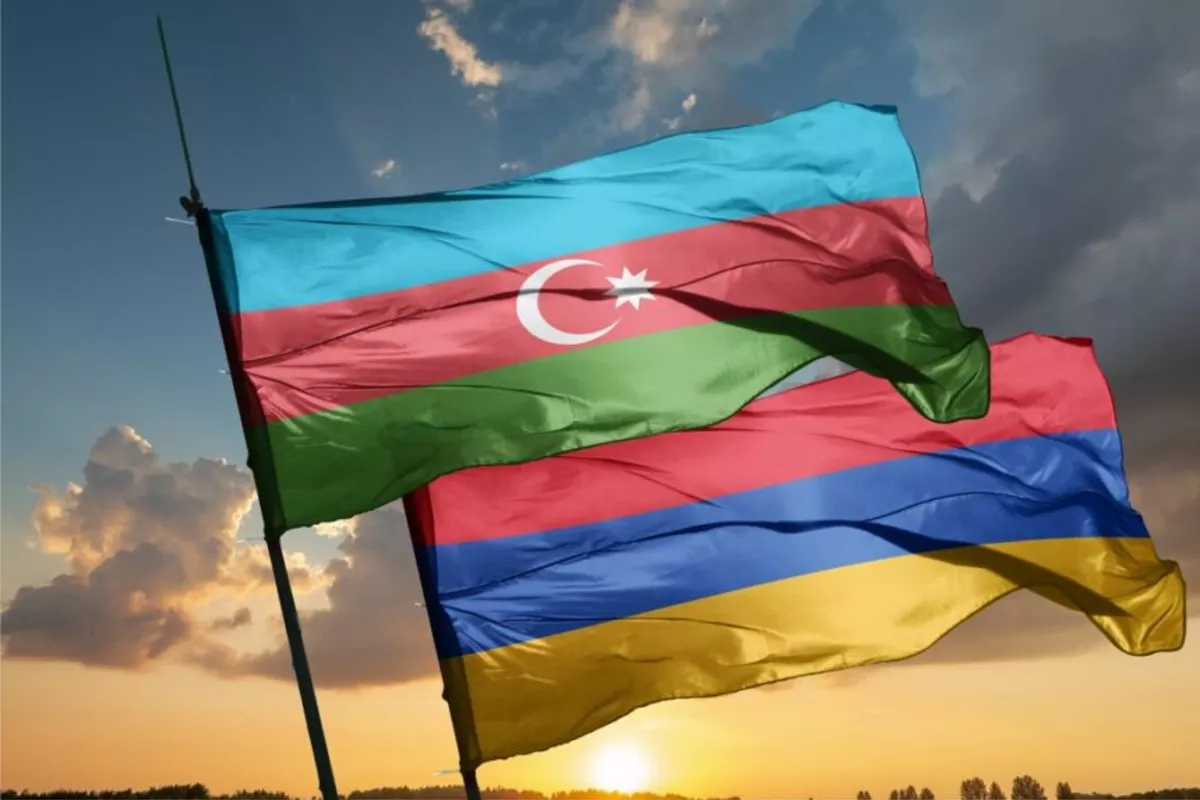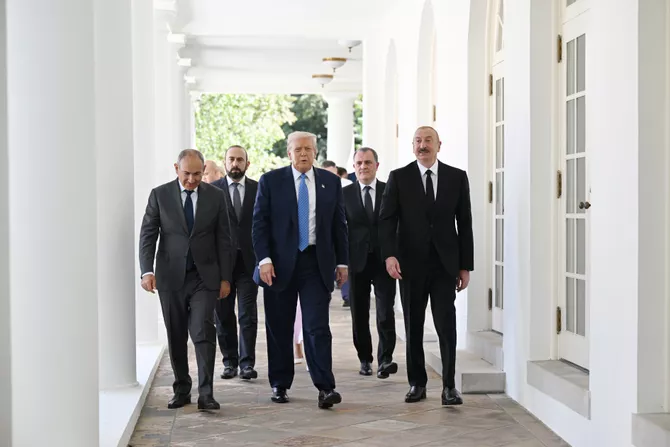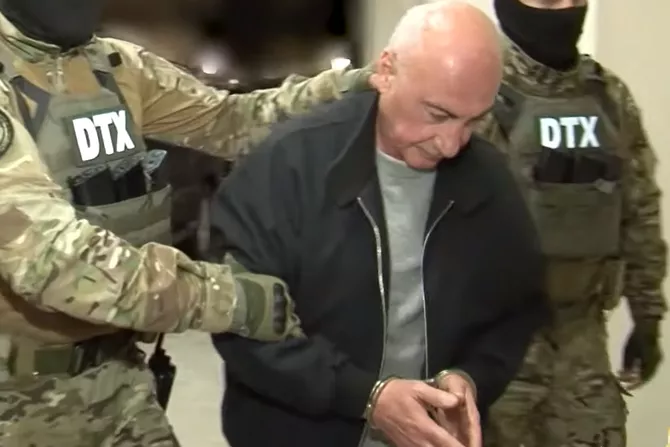
When Azerbaijani president Ilham Aliyev and Armenian prime minister Nikol Pashinyan shook hands with Donald Trump at the White House on August 8, 2025, it wasn’t just another photo opportunity. For the first time in decades, the leaders of Azerbaijan and Armenia set out a roadmap to end a conflict that has scarred both nations for a generation.
The leaders issued a seven‑point declaration acknowledging that they had “witnessed the initialing of an agreed-upon text of the ‘Agreement on Establishment of Peace and Inter‑State Relations.’” Although not yet fully signed, this document pledges respect for each other’s sovereignty and rejects the use of force to redraw borders, The Caspian Post reports via The National Interest.

It also envisages a US-backed transit route through Armenia to “facilitate unimpeded connectivity” between mainland Azerbaijan and its Nakhchivan exclave. For communities along those routes, this isn’t a mere diplomatic agreement. It’s the promise of reopened roads, revived marketplaces, and communities no longer divided by barbed wire and trenches.
Not everyone sees it that way. Stephan Pechdimaldji, in his recent article, dismisses this accord as hollow symbolism and demands “holding Azerbaijan accountable” for the latter’s actions to restore its territorial integrity. Well, the responsibility is not a one-way street. That stance erases the decades when Armenian forces held internationally recognized Azerbaijani territories under control, displacing hundreds of thousands of people. And it disregards the absolute destruction of hundreds of Azerbaijani towns by Armenian armed forces in Karabakh, which Azerbaijan recovered in a desolate state, and is currently trying to rebuild and revive.
The author’s article also ignores the fact that UN Security Council resolutions from 1993 call for the return of the Armenian-occupied districts that affirmed the territorial integrity of Azerbaijan. Armenia’s authorities ignored these calls and administered these areas as their own-sending conscripts, appointing and promoting military commanders, issuing commercial licenses, and paying salaries of quasi-governmental entities-circumstances that the European Court of Human Rights later recognized as “effective control” in its Chiragov v. Armenia judgment. For nearly three decades, negotiations stalled and the line of contact hardened.
Only after the 2020 war, when Azerbaijan regained control over its districts, which Armenia had occupied, did the sides begin serious peace talks. Baku then offered ethnic Armenians in the Karabakh region citizenship, local self-government, and protection of property and cultural rights-proposals largely rejected at the time. When Azerbaijan launched a one‑day operation in September 2023 to reassert control over remaining separatist‑held areas, the de facto local leadership agreed to disarm and accepted that the rights and security of Armenians would be handled under Azerbaijan’s constitution. This led to the departure of the Armenian population of Karabakh in the following weeks. Pechdimaldji characterizes this departure as “ethnic cleansing.”
It is difficult to pretend that “fear and hardship” were not among the factors that drove many families to leave. But branding their departure as “ethnic cleansing” without evidence of violence reduces complex choices to a slogan and implies intent where none has been proven. Quite the contrary, the Azerbaijani authorities repeatedly called for the reintegration of the Armenian population and proposed a path to acquire citizenship and other rights.
Pechdimaldji alleges that Armenian “political prisoners” and “prisoners of war” languish in Azerbaijani prisons. In reality, there are no POWs held in Azerbaijan, as all were handed over to Armenia right after the November 9 agreement in 2020. There were a few dozen Armenian military personnel captured long after the cessation of hostilities back then, and they were released in subsequent agreements between the parties.

Currently, Azerbaijan holds in detention and pursues a legal process against several political and military leaders of the separatist entity illegally created in Karabakh. They have been charged with serious crimes. The court processes are public, and the detainees are afforded all legal rights under Azerbaijan’s legislation.
Accusations of cultural erasure also require nuance. Some Armenian clergy warn that hundreds of churches and monuments are at risk. At the same time, Azerbaijan counters that many disputed sites belong to the region’s ancient Caucasian Albanian heritage and pledges to protect them. Some of the churches referred to by the Armenian side have been built recently in the occupied territories and bear no historical or cultural significance.
There are still tasks ahead on the way to the final signature of the peace accord: 1) The OSCE Minsk Group is to be dismissed, 2) A road connecting mainland Azerbaijan to its Nakhchivan exclave is to be opened, and 3) Armenia is still to amend its constitutional provisions that Baku views as territorial claims. However, mentioning all of the above, the president of Azerbaijan stated in a post-summit interview in Washington, DC, that “a lasting peace has already come to our region.”
Peace in the South Caucasus will not be achieved by pretending that suffering has only gone one way. The foundations of peace lie within the region, where the people of both Azerbaijan and Armenia can reimagine their common future. The governments concerned can lift remaining blockades, reopen roads, protect cultural heritage, and finalize the treaty they have initiated.
It also requires outside voices to treat the region’s people not as pawns in a geopolitical game but as neighbours who deserve to live without fear. Those who prefer to recycle tropes and ignore inconvenient facts do little to help Armenians or Azerbaijanis. Ultimately, trust is built not by shouting accusations from the sidelines, but by recognizing past wrongs on all sides and supporting concrete steps toward a shared future.
By Anar Jahangirli
Anar Jahangirli serves as Advisor at Karabakh University in Khankendi, Azerbaijan. He is a Lecturer of Public Policy at ADA University in Baku, Azerbaijan. He has also served as Chairman of the Board of a grass-roots community organization. Anar has worked in diplomacy, education management, international development, communications, and public affairs, and holds a degree in Public Administration from the Kennedy School of Government at Harvard University. Follow him on X: @AnarJahangirli.
Share on social media